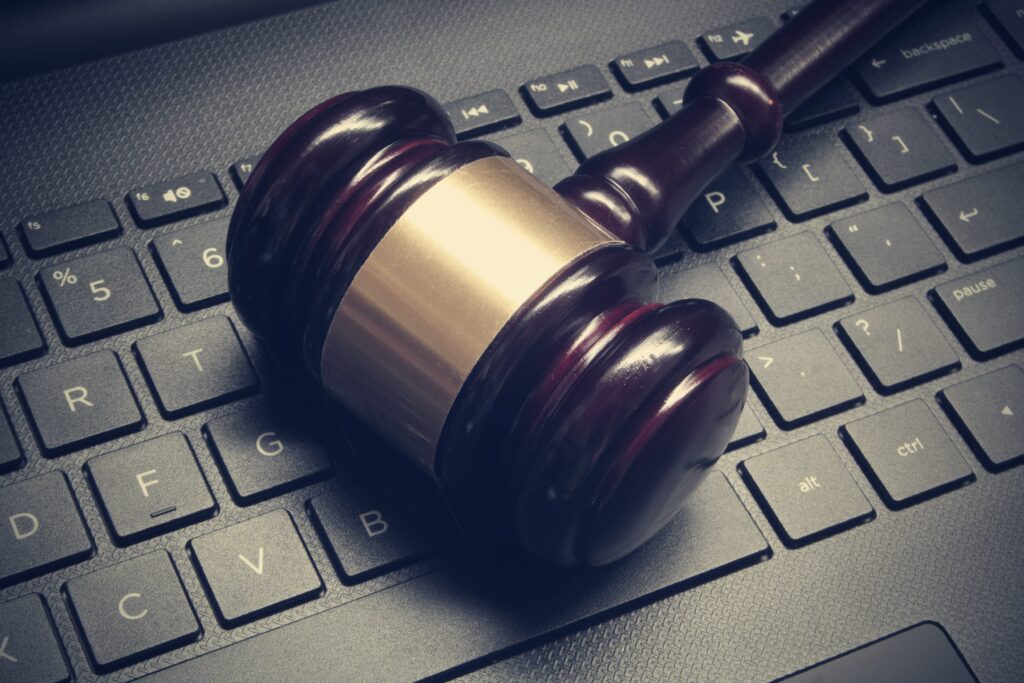
If you were recently targeted by “revenge porn” — the heinous act of posting sexually explicit photos or videos of another person online without his or her consent — there is a new way to fight back. Thanks to a new law set to go into effect on May 1, 2019, posting revenge porn will soon be considered a crime in New York. This new law gives revenge porn victims a powerful way to protect themselves against online harassment and abuse.
What Does the New “Revenge Porn” Law Do?
The new law is intended to make it easier and faster to get harassing sexual content taken down, and for targeted individuals to protect themselves and seek justice through the court system in several ways.
First, the new law makes it a class A misdemeanor (or a class E felony for a repeat offense) to distribute or publish an intimate image unlawfully, a level of crime that can result in a sentence of up to one year in prison.
To be convicted under the law, the following must be established:
- The wrongdoer intended to cause harm to the targeted individual;
- The victim expected and wished that the image would remain private; and
- The victim’s expectation of privacy was known or should have been known by the wrongdoer.
In addition, the victim can also file a civil lawsuit for substantial monetary damages against the individual who posted the content. In these civil lawsuits, people targeted by revenge porn can sue the culprit for compensatory (financial or injury-related) and punitive damages, and also can recover attorneys’ fees and costs. Plaintiffs bringing suit under the law are not required to file a criminal complaint in order to maintain their lawsuit.
Finally, a revenge porn victim can seek a court-ordered injunction to have the image(s) or video(s) removed from a website.
How Long Do I Have to File a Claim?
Under the new law, residents of New York State targeted by revenge porn have three years after a photo or video has been posted online to file claims.
If the posting is not discovered until after the three-year period has elapsed, the person pictured has up to a year after finding out about it to file a claim in court.
What Other States Have Outlawed Revenge Porn?
New York joins at least 41 other states in outlawing revenge porn, and over ten other states that allow civil lawsuits in response to such harassing and nonconsensual online posts.
The New York law is the first that provides specifically for courts to order websites that host or transmit such content to remove the unlawfully posted images or video.
I’m a Target of Revenge Porn. What Should I Do?
If you’ve been targeted by revenge porn, do not delete any electronic material or data, and keep all tangible evidence. Evidence and material such as texts, instant messages, voicemails, data in phone apps, emails and social media posts will likely be essential to proving that the wrongdoer knew that you did not consent to having the photos posted and intended to cause harm. You should affirmatively act to preserve as much evidence as you can. For example, back up your devices, take screenshots, and save material to hard drives or on web-based storage accounts.
All victims of revenge porn should promptly speak with an attorney who can advise them of their rights. The attorneys at Wigdor LLP have extensive experience representing victims of harassment and can help you get the photos taken down and bring the perpetrator to justice.
Call (212) 257-6800 to speak with a victims’ attorney.
| Lawrence M. Pearson Partner |
| WIGDOR LLP 85 Fifth Avenue, New York, NY 10003 T: (212) 257-6800 | F: (212) 257-6845 |
| lpearson@wigdorlaw.com wigdorlaw.com |